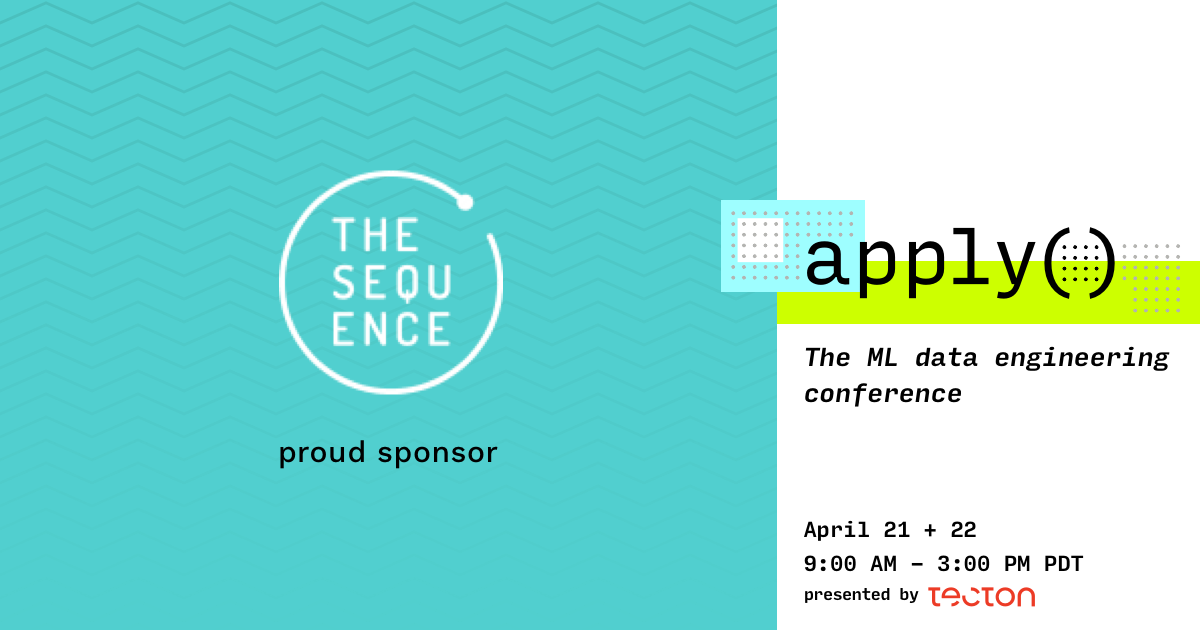❇️ The Nvidia AI Network Effect Goes Beyond Hardware
Stay up-to-date with the most relevant AI&ML news
📝 Editorial
This week was the highly anticipated Nvidia GTC conference and, once again, artificial intelligence(AI) was at the front and center of it. Nvidia remains the undisputed leader in AI-first chips, but its footprint in the AI industry is rapidly expanding beyond that domain. During the GTC conference, Nvidia announced new products across a wide spectrum of AI hardware and software categories, which makes it extremely clear that the chip giant is adopting a holistic view of the AI ecosystem. The announcements included new chips optimized for verticals such as self-driving vehicles and health care as well as large-scale analytic workloads. While the AI-hardware announcements were expected, Nvidia also unveiled new software solutions such as Megatron, a PyTorch-based library for large-scale transformer models, and Jarvis, a framework for building conversational agents.
In addition to the portfolio of AI hardware and software solutions, Nvidia also announced optimized versions for leading platforms in the machine learning market, such as Domino Data Lab and Cloudera. The trend of machine learning platforms optimized for Nvidia hardware architectures is not new but it's certainly expanding rapidly. All things considered, Nvidia can be considered one of the companies with the most solid network effects in the entire AI space. This adds to the defensibility of its offering and makes it more challenging for AI-hardware startups to disrupt Nvidia’s dominance. Disruption in the AI market is happening rapidly but, for now, we are living in Nvidia’s world.
🔺🔻TheSequence Scope – our Sunday edition with the industry’s development overview – is free. To receive high-quality content about the most relevant developments in the ML world every Tuesday and Thursday, please subscribe to TheSequence Edge 🔺🔻
🗓 Next week in TheSequence Edge:
Edge#81: the concept of Zero-Shot Learning; LASER – how Facebook uses Zero-Shot Learning to Master NLU Tasks Across 93 Languages; Hugging Face library that includes an awesome pipeline for Zero-Shot classification.
Edge#82: an in-depth overview of Fiddler – one of the most complete and initiative technology stacks in the market.
Now, let’s review the most important developments in the AI industry this week
🔎 ML Research
Self-Supervised Learning for Time-Series Forecasting
Facebook AI Research (FAIR) published a paper proposing a self-supervised learning technique for hyperparameter tuning and model selection in time-series forecasting scenarios ->read more on FAIR blog
Deep Document Understanding
IBM Research published some of their work in machine learning about extracting data from highly complex documents ->read more on IBM Research blog
Reinforcement Learning for Concurrent Programming
Microsoft Research published a paper outlining a reinforcement learning method that is able to improve the programming of concurrent, multi-threaded systems ->read more on Microsoft Research blog
🤖 Cool AI Tech Releases
NVIDIA Jarvis
During its GTC 2021 conference, NVIDIA unveiled the general availability of its Javis framework for creating conversational AI applications ->read more in the NVIDIA press release.
Interactive Navigation Challenge
Google and Stanford University unveiled a new version of the iGibson Challenge for building navigation systems ->read more on Google Research blog
Domino Data Lab
Domino Data Lab launched a new version of its MLOps platform optimized for Nvidia technologies ->read more in this coverage from Datanami
💎 We recommend
Join us THIS WEEK: April 21-22. Register for free.
💬 Useful Tweet
Most promising AI companies, according to CBInsights


💸 Money in AI
Microsoft continues its AI expansion. This week the company acquired Nuance Communications for $19.7 billion. Nuance is a 20-year-old veteran of voice recognition and conversational AI, building solutions for healthcare, financial services, telecommunications, retail, and government.
AI systems and services platform startup SambaNova raised $676 million in its Series D round, with the evaluation at $5.1 billion. The company is building software and hardware services, allowing enterprises to run AI applications and focus on the business objectives and not on infrastructure.
Data-labeling company Scale has raised $325 million in Series E funding, scaling to $7.3 billion evaluation. Scale’s mission is to accelerate the development of artificial intelligence. They do this by providing a data-centric, end-to-end solution to manage the entire ML lifecycle.
AI-powered home services platform HomeX raised $90 million in a funding round. Their latest advancements in natural language processing, machine reasoning, and knowledge engineering allow HomeX to provide an AI-backed diagnosis of home issues.
Business intelligence for the built environment company Density raised an additional $25 million. The startup designs and manufactures sensor technology that measures how people use workspaces.
Data quality engineering startup Bigeye raised a $17 million Series A round. It helps data and ML teams detect and prevent operational data quality issues like delayed data, formatting errors, outliers, duplicates, and missing values.
Digital forensics platform Cado Security raised $10 million in a Series A round. By automating data capture and processing across cloud and container environments, it enables security teams to investigate and respond to cyber incidents at cloud speed.
AI software startup Deeplite raised a $6 million seed round. It uses AI to automatically make other AI models faster, smaller and more energy-efficient, creating highly compact, high-performance deep neural networks for deployment on edge devices such as cameras, sensors, drones, phones and vehicles.



